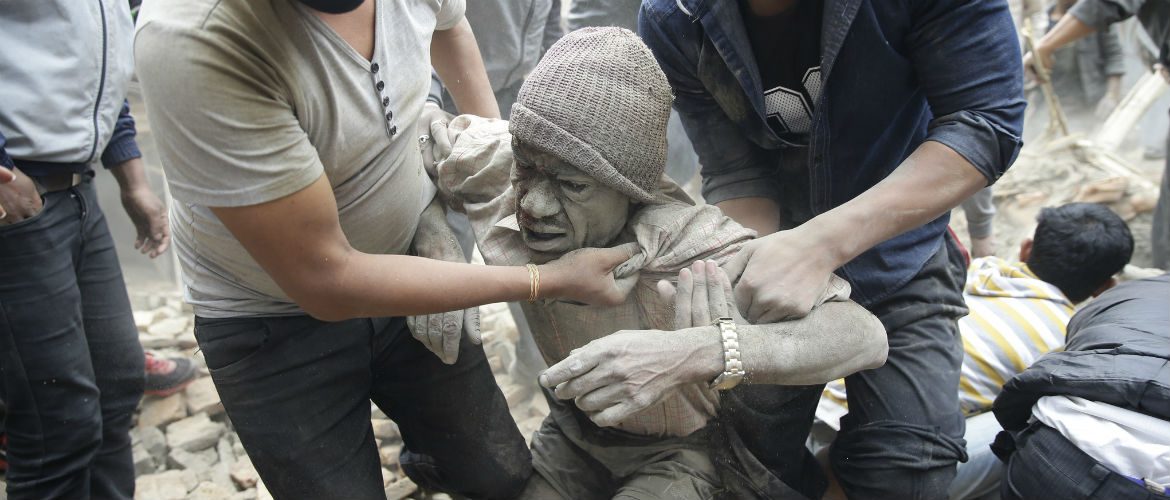
A year ago a devastating 7.8 magnitude earthquake hit Nepal. Two weeks later, a second earthquake struck. Almost 9,000 people were killed and more than 850,000 homes were destroyed or damaged. Thousands of Oxfam supporters took action and Oxfam was able to act immediately to save lives.
Thanks to the generosity of supporters like you and the Australian Government, we can continue to work with local people, our partners and the government to ensure that Nepal builds back stronger than before. Here’s a snapshot of some of the life-changing work that you have made possible:
Giving warm and shelter
As the sole carer for her elderly mother and seriously ill daughter, Thulimaya Lama was very grateful to receive a winter kit from Oxfam to help the family cope after their home was destroyed by the earthquake. At night, temperatures can plummet to below zero in winter – and families like Thulimaya’s were especially vulnerable.
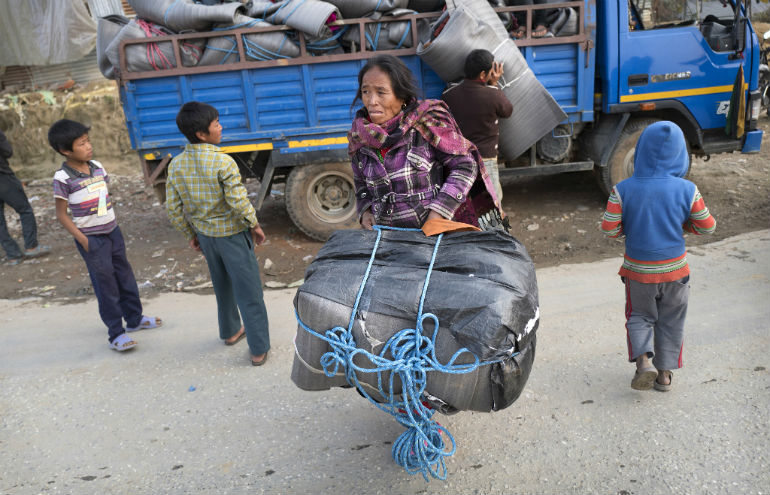
“I was given two mattresses, two quilts, a tarpaulin, some cooking vessels and some blankets,” she says.
“I am very grateful that people from far away have helped me.” More than 800 vulnerable families received winter kits in Thulimaya’s area, which was badly affected by the earthquake and aftershocks.
Rebuilding communities
When the earthquake destroyed his water supply, Bhakti Basnet feared he would have to leave the village he loved. But with your help, Oxfam started a cash-for-work scheme there, paying local people to restore a water pipeline and storage tank.
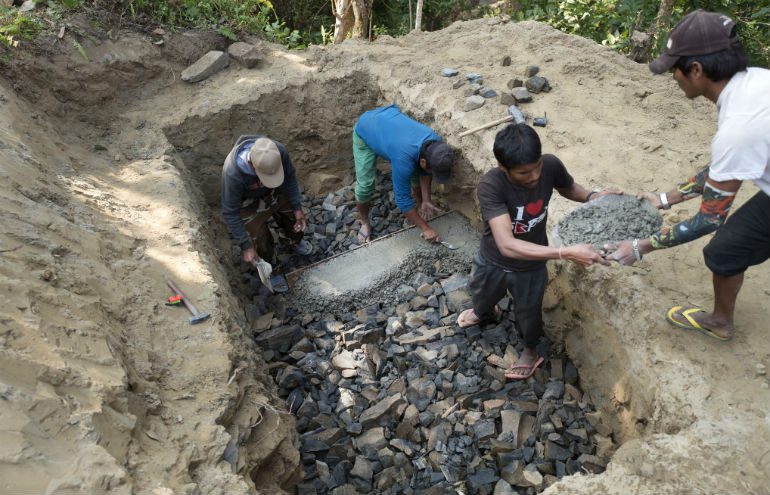
Bhakti says: “There are 42 households involved in this project and around 400 to 500 people will benefit. Lots of people have kitchen gardens, so they will be able to use the water for those as well as for drinking. If Oxfam had not helped us, all 42 households would have had to move. My father and my father’s father lived in this place. If I’d had to move, I would have been really sad.”
Bhakti is one of many people taking part in our cash-for-work schemes to rebuild their own communities.
Getting girls back to school
Sangita Pariyar and her classmates will never forget the terrifying earthquake that destroyed their school. Thankfully, they’re now attending a temporary school where Oxfam has provided water and sanitation facilities. This includes separate toilets and wash areas for girls, as well as hygiene classes where they can discuss personal issues openly for the first time. Girls feel much happier coming to school as a result.
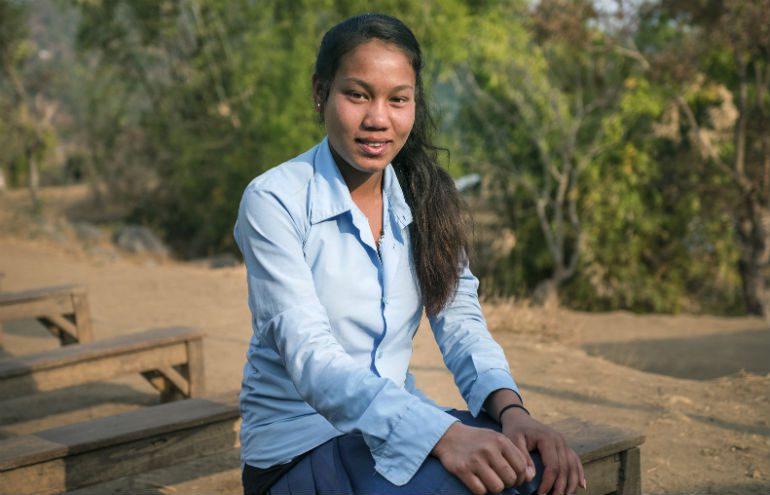
“I like this school more than the old school, because there were no doors on the toilets there,” says Sangita.
“I really appreciate that there are separate toilets for the boys and girls.” As permanent schools are rebuilt, Oxfam will work to make sure girls’ needs are taken into account — and they get the education they deserve.
Restoring livelihoods
Netra Parajuli stands amidst the rubble of what was once his thriving shop in Lamosanghu. He is one of thousands whose livelihoods were destroyed in the earthquake. Oxfam is distributing vouchers so people can buy what they need to restart their farms, businesses and kitchen gardens — which is good news for traders like Netra. With the stock he salvaged, he has managed to set up a temporary shop, and business is booming.
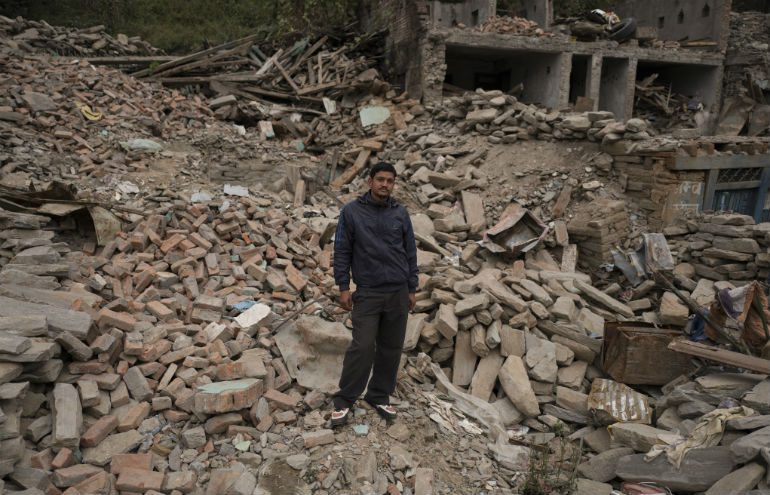
“I’ve had almost 900 people come to my shop because of the vouchers being distributed. The most popular items have been the spade, the hoe and the watering can. If people’s tools are damaged, I repair them. I make the hoes myself, and I sometimes show people how to use them too.”
Throughout the response, we are working with the government of Nepal to ensure that the needs of women, elderly people and other vulnerable groups are included in national recovery plans.
Now, we’re shifting our focus to long-term recovery to help communities rebuild their lives. The earthquake not only destroyed homes but left many without employment.
Thousands of people are now benefiting from our cash-for-work schemes which gives a much-needed income in return for repairing damaged water supplies and pathways connecting communities. Repairing irrigation systems will help farmers grow crops again and the cash injection into the community will boost the local economy and keep the markets open.
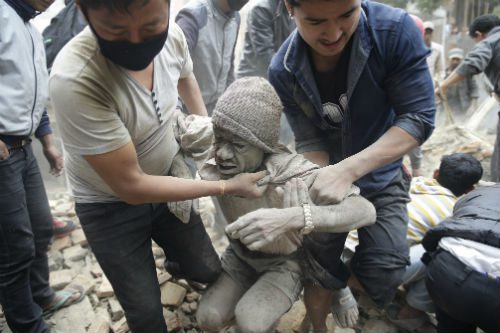
Want to do more? Become a regular donor
Become a regular donor and you will provide long-term support to rebuild lives and create a better future.